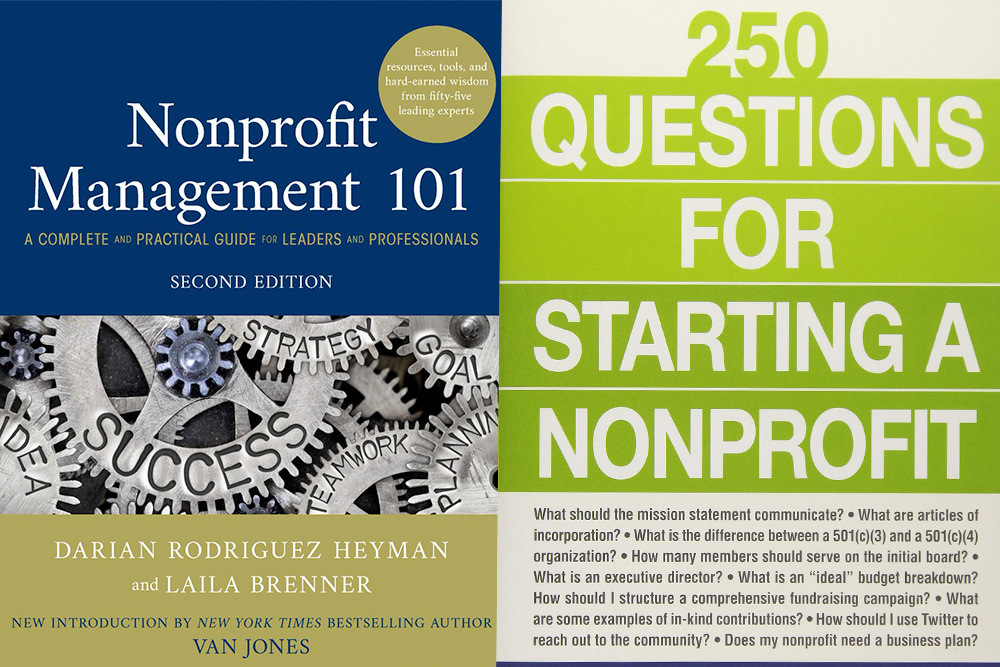Writing a Grant Proposal
Are you applying for a grant on behalf of your nonprofit organization? This guide will help you write a master proposal.
A master proposal includes all the information you may need to apply for a grant. Every foundation will have different instructions for their grant applications, so it's important to customize each proposal to those instructions. A primary reason grant proposals are not accepted is because instructions were not followed.
Having a master proposal ready will make it easier and faster to organize everything, but it should not be the only format an organization uses. Many foundations have moved to an online format that will ask specific questions about the goals and mission of your organization.
Be discriminating about where or to what organization you submit a grant proposal. Choosing organizations carefully based on fit, mission, and other factors is a more efficient use of your time than applying broadly and with less care.

The Need/The Narrative
The first part of the narrative should explain why your organization/program is needed. Ask yourself these questions when writing this portion.
- Who am I helping?
- What is their environment like?
- Why do they need my help?
- Is anyone else already helping them?
- Is there data available to back up my statements?
Data
The use of reliable data in your need/narrative statement is imperative to a good argument. Use reliable sources for your data. These sites provide free and respected data:
- US Census Bureau
- USA.gov Statistics Page
- Pew Research
- Foundation Maps (accessible through your local Funding Information Network)
- Issue Lab
Project Description
A project description should be as detailed as possible. You can include a description of the program or organization activities, job designations, and event schedules.
Funders understand that plans may change, but expect the original proposal to remain consistent. Be committed to your original proposal.
Evaluation & Sustainability
Include performance measurement methodology in your project description. Also include how the program will sustain itself. Many funders require quarterly reports; use these as a periodical assessment guide. Before that, however, you need to decide what data you need to track. Write an evaluation plan for your proposal and use it as a guide from the beginning.
Obtaining relevant quantitative data for the evaluation can be difficult. For instance, if your organization is trying to "teach good home ownership skills," what methods of data collection will you use? Does it already exist elsewhere? Qualitative analysis may be useful in this situation. Measure Results is a useful site for evaluation planning.
Funders want your organization to succeed long after their investment. Be sure the organization or program description demonstrates sustainable fiscal capacity and self-sufficiency. List other funding sources, if you have them. Funders are not competing with each other; they are comfortable collaborating with industry "friends" who back the same organizations.
Organization Information
Let funders know why you are uniquely qualified to carry out your actions. Items to include might be your mission and vision, your Board members, previous successful projects, and other funding awarded to your organization.
Budget
Budgets need to be itemized. Include capital expenses and operating expenses, etc., that you will need to complete your mission. Do not sell yourself short; create a detailed and realistic budget. If a project is underfunded, it will make you look disorganized.
Look at your project description and itemize everything with a cost, include these in your budget. Staff salaries can be divided into "percentage of time spent." For example if your project manager spends 50% of his or her day on one program, include this in the salary budget description of the program's grant request.
Additional Paperwork
Funders will ask for all kinds of paperwork, so it's best to have copies of your paperwork on file so you can access them easily when you need to. This file will also be useful in case of an audit.
This paperwork should include the organization's charity registration certificate and 501(c)3 certificate, the organization's most recent 990 tax form, the organization's mission and vision statements, and a list of board members with their contact information and qualifications.

How to Start a Nonprofit in Maryland
Find resources and assistance for starting a nonprofit in Maryland, or finding alternatives to starting a nonprofit.

Business, Science & Technology Department
Browse collections covering many aspects of business, computers, cooking, health, psychology, and sports.
If you would like to know more, try our Live Chat with a Librarian service, or contact us.





